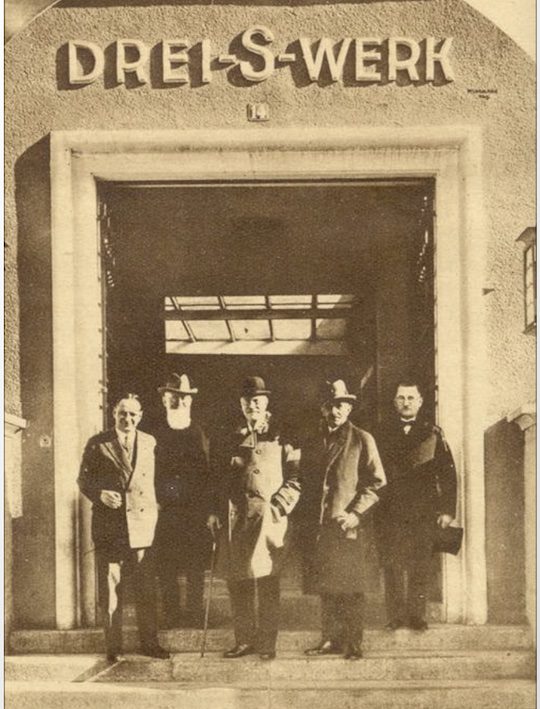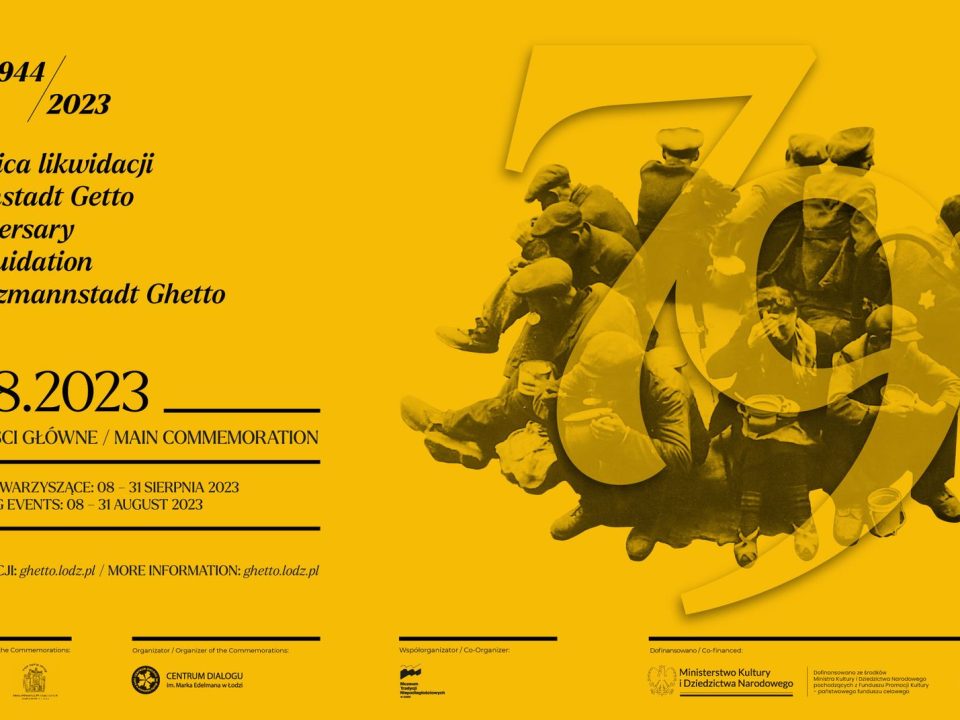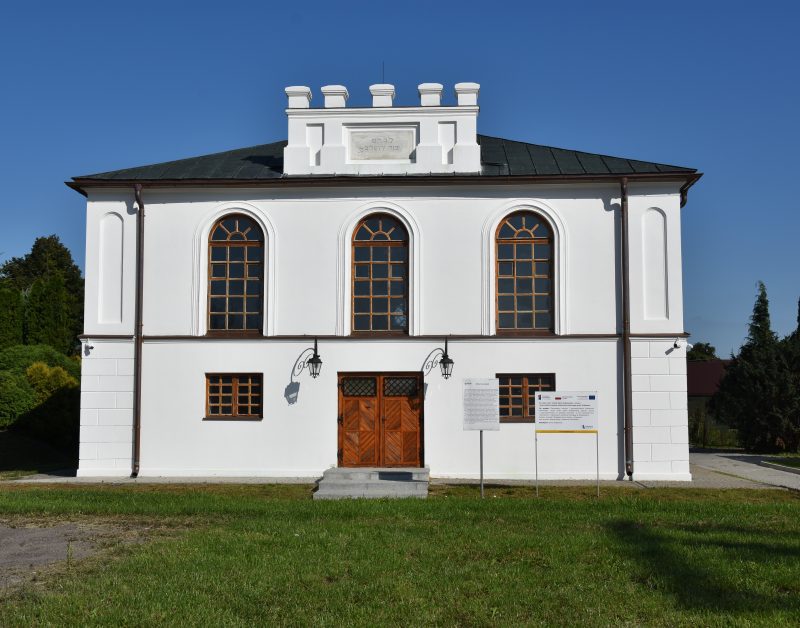Im Jahr 1937 flüchtete Walter Tuchmann aus Nazi-Deutschland, weil er als Jude und Inhaber einer florierenden Nadelfabrik in Schwabach großen Gefahren ausgesetzt war. Als Tuchmann aus Schwabach verschwand, verlor er auch seine Fabrik, das Drei-S-Werk. Die Führung vermittelt Wissenswertes zu Tuchmanns Familie, seiner Position als Firmeninhaber und Grammophonnadelproduzent und thematisiert seine dramatische Flucht.
Eintritt frei
Anmeldung: schwabach@juedisches-museum.org
Nicht barrierefrei
Im Jahr 1937 flüchtete Walter Tuchmann aus Nazi-Deutschland, weil er als Jude und Inhaber einer florierenden Nadelfabrik in Schwabach großen Gefahren ausgesetzt war. Als Tuchmann aus Schwabach verschwand, verlor er auch seine Fabrik, das Drei-S-Werk. Die Führung vermittelt Wissenswertes zu Tuchmanns Familie, seiner Position als Firmeninhaber und Grammophonnadelproduzent und thematisiert seine dramatische Flucht.
Eintritt frei
Anmeldung: schwabach@juedisches-museum.org
Nicht barrierefrei
Wie kam es zur Ansiedlung von Juden und Jüdinnen in Franken? Wie gelangte das Wiener Memorbuch vom Jüdischen Ghetto Wien nach Fürth? Warum zog es Levi Strauss, den Erfinder der Jeans, von Buttenheim nach San Francisco? Was verbindet die New York Times mit der Kleeblattstadt? Welche Fluchtwege nahmen fränkische Jüdinnen und Juden im Nationalsozialismus, wo leben die Überlebenden der Schoa und deren Nachfahren heute und was hat der Kurort Bad Wildbad mit der Gründung des Staates Israel zu tun? Die Führung widmet sich Motiven und Gründen von Migration und Flucht in unterschiedlichen Epochen und diskutiert, was dies für unsere heutige Gesellschaft bedeutet.
Eintritt frei
Anmeldung: besucherservice@juedisches-museum.org
Bedingt barrierefrei; alle Stockwerke außer Ritualbad und Laubhütte sind mit dem Aufzug erreichbar; unterschiedliche Bodenniveaus und Türschwellenhöhen; historische Treppen und Stiegen
Koncert „Drzewo życia” zrealizowany zostanie 29 sierpnia 2023 r. w Teatrze Nowym im. Kazimierza Dejmka w Łodzi. Inspiracją kompozycji i scenariusza są poematy Chavy Rosenfarb. W 1947 roku Chava wydała w Londynie zbiór wierszy Di balade fun nechtikn wald (Ballada wczorajszego lasu), a rok później poemat o ojcu Dos lid fun jidiszn kelner Abram (Pieśń o żydowskim kelnerze Abramie) i zbiory wierszy Geto un andere lider (Getto i inne wiersze) oraz Arojs fun gan-ejdn (Wygnanie z raju). Potem została opublikowana jej sztuka Der foigl fun geto (Ptak z getta). Młoda pisarka wciąż szukała formy, która pozwoli jej opisać tragedię Zagłady.
Scenariusz wydarzenia zakłada ujęcie tekstów Chavy (w przekładzie Natalii Krynickiej z języka jidysz) w formę słowno-muzyczną, podczas której kompozycje wykonają łódzcy muzycy współpracujący z Akademią Muzyczną im.
Richard Haber was born in Poland in 1933, the year Adolf Hitler became Chancellor of Germany. As a child in the Kraków ghetto, he narrowly escaped death before running away with his parents and starting a risky life on the run.
The family was finally captured, sent on a forced march to Auschwitz, escaped and hid until the end of the war.
Arriving in Australia with little education and even poorer English (knowledge of French, Italian, Polish and Russian was of little help), Haber immediately left the horrors of Europe behind him and started a new life. He married, had children and became a respected cardiologist. He is now 90 and still works part-time.
The meeting promoting the book with memoirs of Richard Habra will be combined with a discussion about his history and the impact of difficult memories in later life, as well as the role of memories as a historical source.
Screening of the documentary “Out from the Shadows” telling the story of a Polish Jew, Chaim Rozet, who was murdered by the Nazis in the village of Correze in France in 1944. It focuses on Rozet’s fate, starting from the Yiddish culture in Poland, through the years of war, to contemporary Israel, where the man’s descendants live. The film takes the form of an investigation conducted by the director to bring out the previously erased history from the shadows.
Workshop relate to the unique European and later world phenomenon of ‘postmemory’ –indirect knowledge and experience of the past; memory we do not understand, we are concerned about and sometimes even reject it. We invite you to follow the subject in art – monuments, sculptures, museums, excerpts of theatre performance which were artistic ways of expressing the voice of postwar generations; for them II World War was both distanced and very close event building and shaping their perplex identity. Does ‘postmemory’ mean ‘to remember’? Is it possible to remember events we have not lived through or experienced ourselves? Isn’t it enough to simply remember the past and live on? Does postmemory phenomenon still describe our contemporary reality and life?
Marta Bryś – Doctoral degree at Theatre Studies at the Jagiellonian University in Kraków.
Workshop relate to the unique European and later world phenomenon of ‘postmemory’ – indirect knowledge and experience of the past; memory we do not understand, we are concerned about and sometimes even reject it. We invite you to follow the subject in art – monuments, sculptures, museums, excerpts of theatre performance which were artistic ways of expressing the voice of postwar generations; for them II World War was both distanced and very close event building and shaping their perplex identity. Does ‘postmemory’ mean ‘to remember’? Is it possible to remember events we have not lived through or experienced ourselves? Isn’t it enough to simply remember the past and live on? Does postmemory phenomenon still describe our contemporary reality and life?
Marta Bryś – Doctoral degree at Theatre Studies at the Jagiellonian University in Kraków.
Program:
– The exhibition “Book of the Memory of Wojslawice” will be prepared on the basis of translations and photographs from the Wojslawice Memorial Book published in Tel Aviv in 1970 and will be presented in a gallery in the former woman section of the Wojslawice synagogue.
– A ceremony in memory of the Holocaust victims of Wojslawice will be held on the anniversary of the deportation of Wojslawice Jews to the Sobibor death camp, at the monument at the World War II mass grave of the execution victims, unveiled in 2021.
– Don’t miss the enchanting concert of Jewish music during the Musical All Souls’ Festival. Join us for a memorable musical experience in [location/date].
Keep the memory of the daredevils who rose up in the Bialystok Ghetto 80 years ago, and join us as we pay homage to their bravery and resilience. You are invited to a captivating exhibition that will show you defining moments of history, showcasing unique photos from the period of 1941 – 1943 in Bialystok.
Our carefully curated program promises an enriching experience:
🕔 17.00: Engage with Bartek Samarski, a passionate member of the Association of the Museum of Bialystok Jews, as he unveils the untold stories of life in the Bialystok ghetto. Delve into the historical archives for a truly enlightening lecture.
🕔 17.20: Discover the remarkable life of Szymon Datner through the heartfelt narration of Dr. Helena Datner (JHI).









